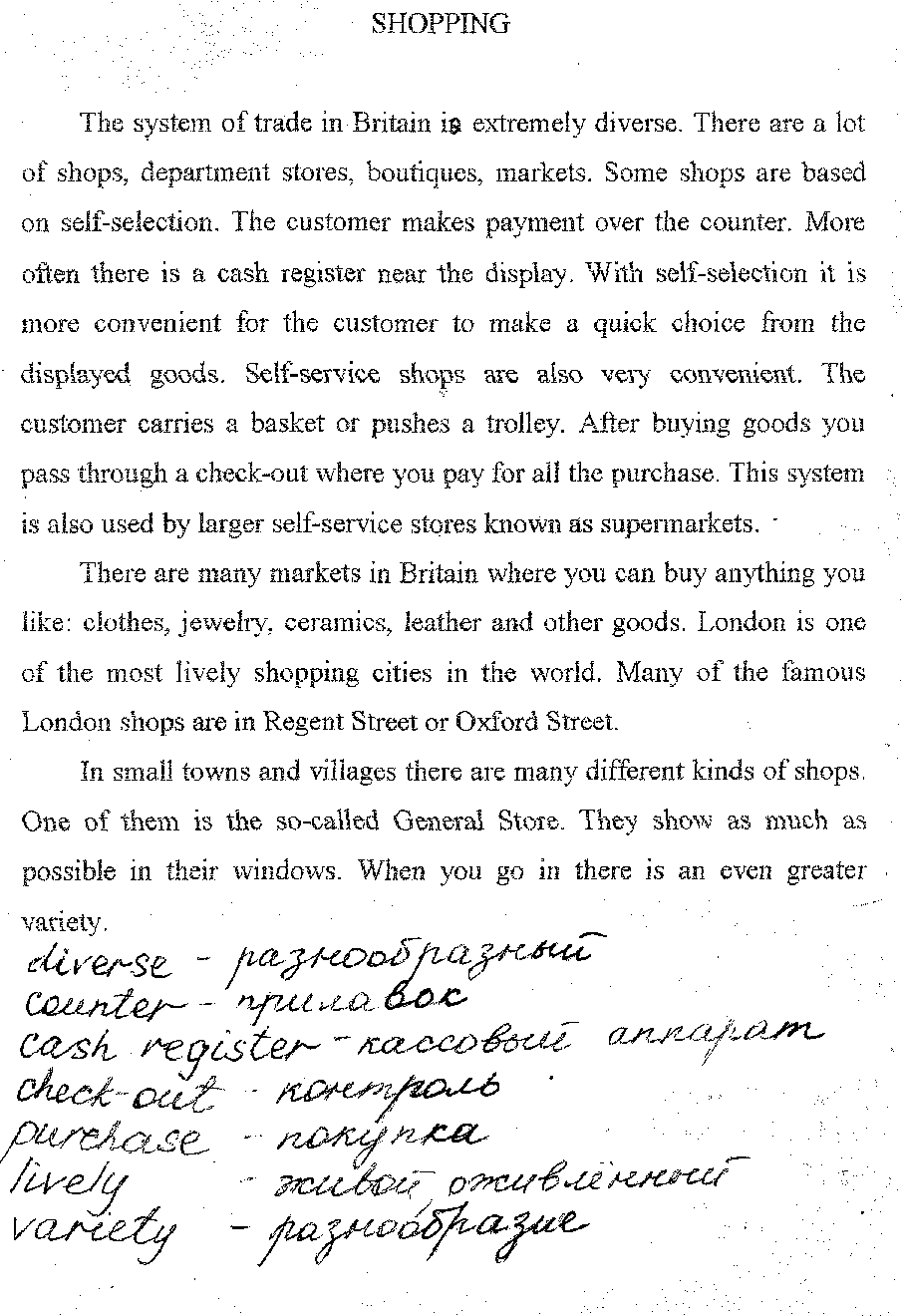
Passport and customs control
Nowadays people who go on business mostly travel by air as it is the fastest means of travelling. Landing formalities and customs regulations are more or less the same in all countries. While the passenger is still on board the stewardess gives him an arrival card to fill in. He must fill in his name, birth date, nationality, occupation, passport information and visa information, home address. After the passenger has disembarked, officials will check his passport and visa. In some countries they will check the passenger’s certificate of vaccination. Then the passenger goes to the customs for an examination of his luggage.
As a rule personal belongings may be brought in duty free. If the traveller has nothing to declare he may just go through “the green” section of the customs. In some cases the customs inspector may ask you to open your bags for inspection.
To pass the passport and customs control you must be able to answer the following questions:
Where are you going?
How long are you going to stay?
What is the purpose of your visit?
Can I see your vaccination certificate?
Is this your suitcase?
Have you got anything to declare?
Have you got any things liable to duty?
How many packets of cigarettes have you got?
English Meals
Four meals a day are served traditionally in Great Britain: breakfast, lunch, tea and dinner. In many countries breakfast is a snack rather than a meal, but the English breakfast is a full meal. The usual English breakfast is porridge, bacon and eggs, marmalade or jam with buttered toast, and tea or coffee. For a change, they can have a boiled egg, cold ham, or fish.
The English have lunch at one o'clock. It starts with soup or fin it juice. Then comes meat or fish with vegetables. Finally, they have sweets, biscuits or cold fruit salad and a cup of coffee. Some people like beer with lunch.
Tea, the third meal of the day, is taken between four and five o'clock. Friends often come for a chat while they have their cup of tea, cake or biscuit. It is a very light and the most informal meal of the day.
Dinner is the biggest meal of the day. The usual time is about 7 o'clock and all the members of the family sit down together. The first course is soup. Then comes the second course; fish or meat. Then the dessert is served. Some people have dinner in the middle of the day instead of lunch. They have tea between 5 and 6 with an omelette, or sausages or fried fish and chips. Then before going to bed, they may have a snack or supper - a cup of hot milk with a sandwich or biscuit.
a snack-легкая еда, закуска
for a change – для разнообразия
a boiled egg – варенное яйцо
vegetables - овощи
a chat – разговор, болтовня
light - легкий
instead of - вместо
biscuits - печенье
sausages – колбаса, сосиски

Money system
Money is used for buying and selling, measuring values and storing wealth. Almost every society now has money economy based on coins and paper notes. Paper money is easy to handle and very convenient in the modern world. Cheques, cards and credit cards are often used, too. Each country has its own system of money. The modern decimal coinage of the UK was introduced in 1971. Britain's currency is the pound sterling (£) which is divided into 100 pence (p). English bank notes and coins have the Queen's head on one side.
Nowadays coins and bank notes are less used than in the past. The English prefer to use "plastic money": various plastic cards (credit cards, cash cards, cheque cards and others). Many major banks in Britain have cash point machines for using a credit card or a PIN(personal identification number).
Banks offer a wide range of services: personal loans, standing orders, personal pensions, executor services and overdraft facilities, When you want to save and get a good return on your money you can open a high-interest deposit account, you can also cash a cheque there.
measuring values – измерение ценностей
storing wealth – хранение богатств
coins - монеты
paper notes – купюры, банкноты
to handle - обращаться
decimal coinage – десятичная денежная система
currency - валюта
cash-point machines - банкоматы
loans - ссуды
standing order –постоянное платежное поручение
executor services – услуги душеприказчика
to save – копить, сберегать
a high-interest deposit account – высокопроцентный депозитный счет
overdraft facilities – превышение кредита
